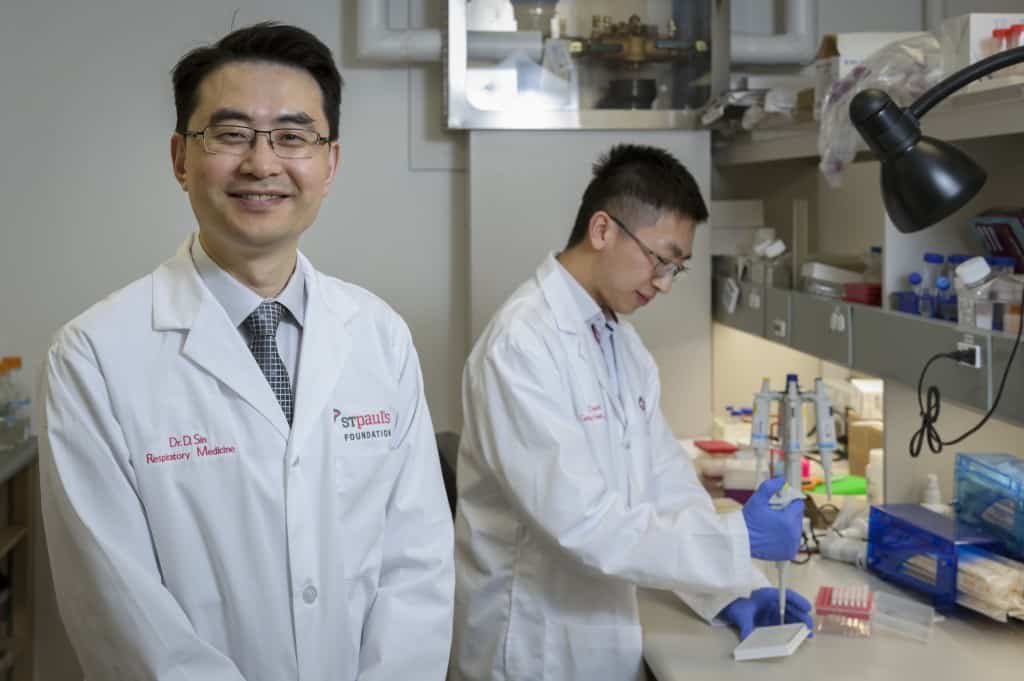The team at the Centre for Heart Lung Innovation at St. Paul’s Hospital, led by Dr. Don Sin, is working with Simon Fraser University professors to develop and implement a rapid (less than 30 minutes) and cost-effective diagnostic test for COVID-19. This test is intended to complement existing protocols recommended by the World Health Organization and provide a potential inexpensive and rapid alternative.
The proposed test will use nasal or throat swabs, or even saliva, to detect the coronavirus using a novel ribonucleic acid (RNA) technology called MANGO, short for isothermal mango nucleic acid sequence based amplification.
“Our strategy in using MANGO is superior to traditional methodologies because it uses more robust and cost-effective equipment relative to the more complex approaches,” says Dr. Sin, De Lazzari Family Chair in Heart Lung Innovation. “Another advantage of MANGO is that it is isothermal, which allows viral tests to be performed in a diverse set of testing locations – airports, hospitals, borders etc. We anticipate that this method will significantly save time – about three- to four-fold relative to a standard assay for high viral load samples.”
The study will recruit St. Paul’s patients presenting with acute onset of symptoms consistent with a respiratory tract infection – patients with fever and who have at least one of nasal congestion, rhinorrhea, cough, or sore or scratchy throat. Saliva and nasal swabs will be taken from each patient and the swabs will be immediately taken to St. Paul’s Clinical Medical Microbiology and Virology Laboratory led by Dr. Marc Romney, where they will be processed for viral molecular testing.
“As COVID-19 spreads to an increasing number of places around the world, new strains of SARS-CoV-2 – the virus that causes COVID-19 – may develop,” says Dr. Sin. “In such a scenario, our team at St. Paul’s will be actively detecting the virus from purified patient samples and, as such, will be ideally positioned to rapidly isolate the sequence of the virus and alert the international community.”
“This research project will not only allow for the development of a kit for SARS-CoV-2 detection, but will also enable a rapid generation of health data during the evolution of this global pandemic,” he adds. “We are proud to be a part of the push in research and findings solutions for COVID-19.”
To support our efforts in combating COVID-19 on the front lines, please consider making a gift to our COVID-19 Response Fund today.
